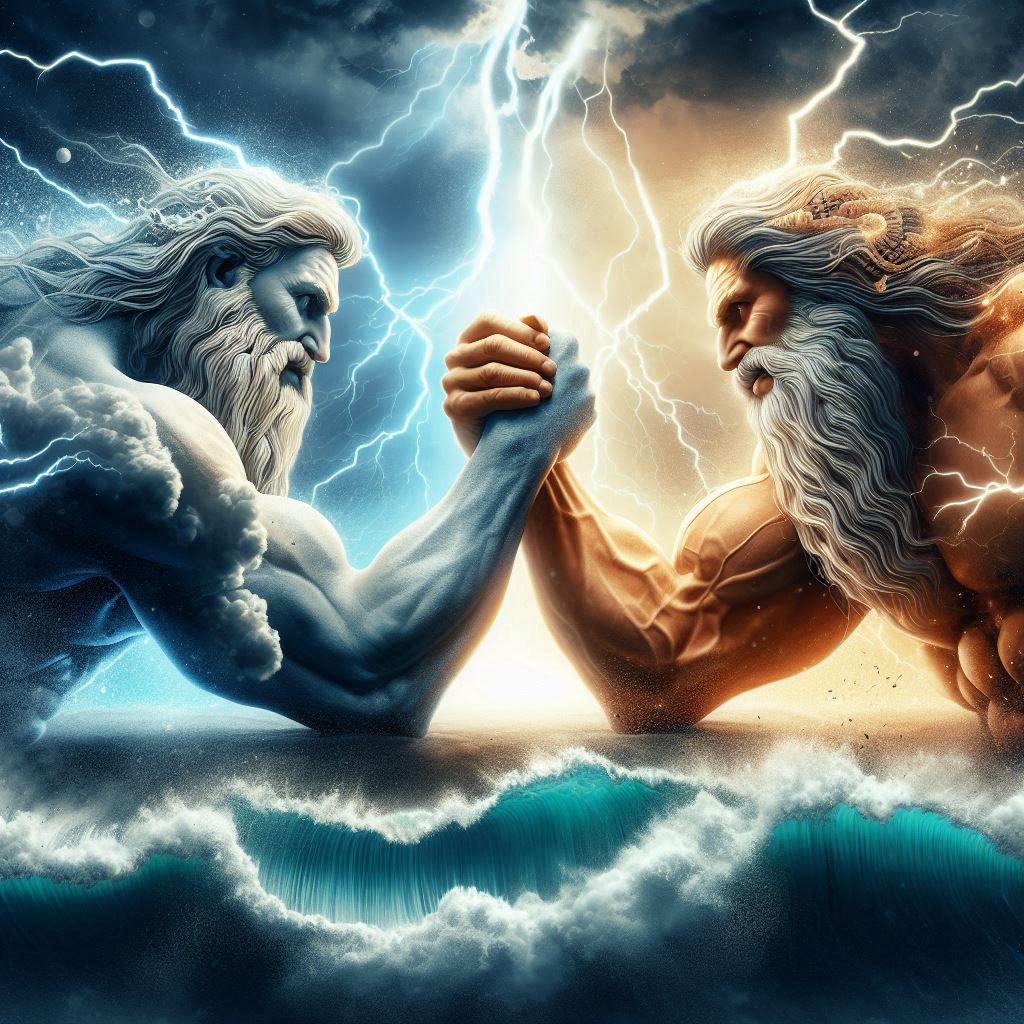Introduction
In Greek mythology, the rivalry between Zeus and Poseidon embodies the struggle between two fundamental forces of nature: the sky and the sea. As the king of the gods, Zeus wields immense power over thunder and lightning, while Poseidon commands the oceans and is known for causing earthquakes. This post explores the strengths of each deity and imagines the outcome of a contest between them.
The Mighty Zeus
Zeus, ruling from Mount Olympus, is celebrated for his authority and fearsome might. He is often depicted wielding a lightning bolt, a symbol of his supreme power. His ability to control storms and punish those who defy him makes him a formidable opponent. Many myths highlight his triumphs, including his defeat of the Titans, establishing him as the foremost god.
The Unyielding Poseidon
In contrast, Poseidon is the god of the sea and holds dominion over all marine life. With his trident, he can create storms and earthquakes, asserting his power in his watery realm. Poseidon is also linked to horses, adding another layer to his influence. His strength is undeniable, especially in scenarios involving water or maritime challenges.
Imagining the Contest
Picture a coastal cliff overlooking tumultuous waves—a fitting arena for their clash. In a battle of storms, Zeus might unleash his thunderbolts, while Poseidon could summon monstrous waves and whirlpools. Each god's strengths would play a critical role, yet the outcome would hinge on the nature of their competition.

The Verdict: Who Would Win?
When considering a contest between Zeus and Poseidon, the outcome hinges on the context of their battle. In scenarios related to land, storms, or lightning, Zeus would likely hold the advantage. His authority as the king of the gods gives him a commanding presence, and his ability to wield thunderbolts makes him a fearsome adversary.
On the other hand, if the contest revolves around the ocean, earthquakes, or marine phenomena, Poseidon would emerge victorious. His mastery over water and the ability to manipulate tides and marine creatures gives him unparalleled power in his domain.
Ultimately, while Zeus may be the more powerful of the two in a general sense, Poseidon’s dominion over the sea presents a formidable challenge. This rivalry reflects a deeper truth in Greek mythology: that power exists in many forms, and the victor may change depending on the arena. Thus, in this epic contest, both gods demonstrate their unique strengths, showcasing the balance of nature's forces and the complexity of their relationship.
Conclusion
The enduring rivalry between Zeus and Poseidon captures our imagination, reminding us of the intricate balance between the sky and the sea. While Zeus represents the overarching authority of the heavens, Poseidon’s mastery of the ocean offers an equally compelling narrative. In the end, both gods symbolize powerful forces of nature, each deserving of reverence in their own right.

